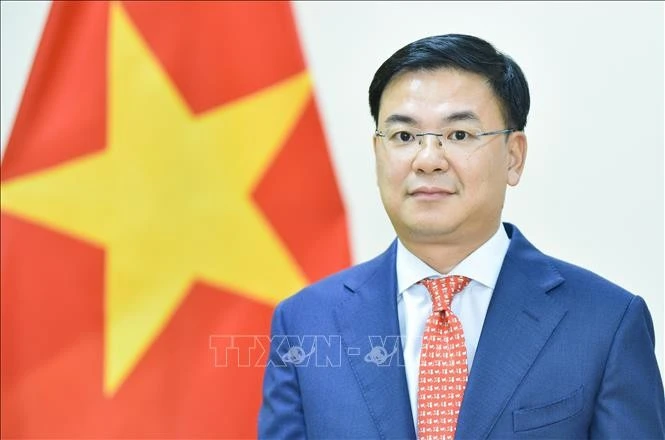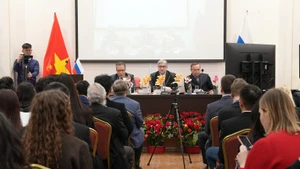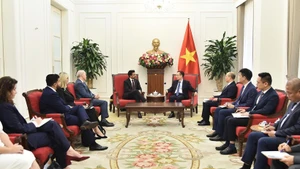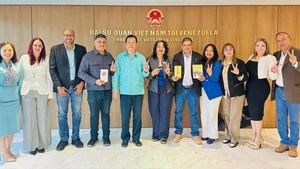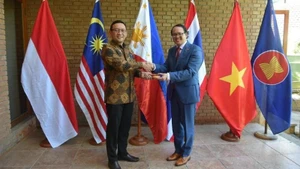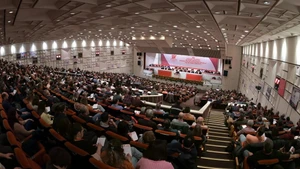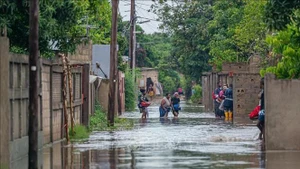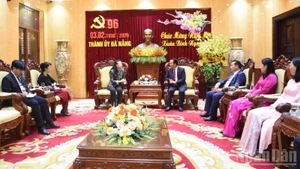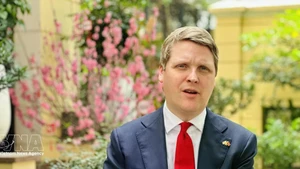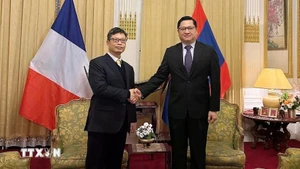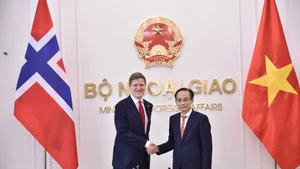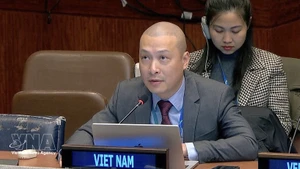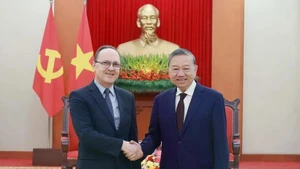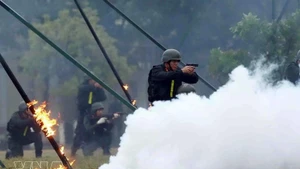In an interview with Viet Nam News Agency (VNA) correspondents in Tokyo ahead of Vice Chairman of the National Assembly Tran Quang Phuong’s working visit to Japan from September 25–30, Ambassador Hieu stressed that the trip demonstrates Viet Nam’s recognition of Japan as a top and long-term strategic partner, reflecting the determination to advance the Comprehensive Strategic Partnership established in 2023. Through high-level exchanges, the two countries will bolster political trust and effectively implement existing agreements.
The visit, he noted, will focus on promoting parliamentary cooperation and sharing legislative experiences in emergency response, disaster management, cybersecurity, energy security, and digital transformation in the public sector. These areas not only strengthen ties between the two legislatures but also help bring the bilateral relationship to greater substance, delivering tangible benefits to the people.
Ambassador Hieu underlined that Viet Nam–Japan relations have made remarkable strides over more than half a century and have particularly flourished since the elevation to a Comprehensive Strategic Partnership in November 2023. The relationship is built on strong political trust and extensive cooperation across economy, trade, investment, defence, security, culture, education, agriculture, healthcare, labour, people-to-people exchange, and local-to-local cooperation. He highlighted the complementarities between the two economies: Viet Nam’s dynamic market and abundant workforce on one side, and Japan’s advanced technology, management expertise, and high-quality capital on the other. Science–technology, innovation, and digital transformation are emerging as new pillars of bilateral cooperation.
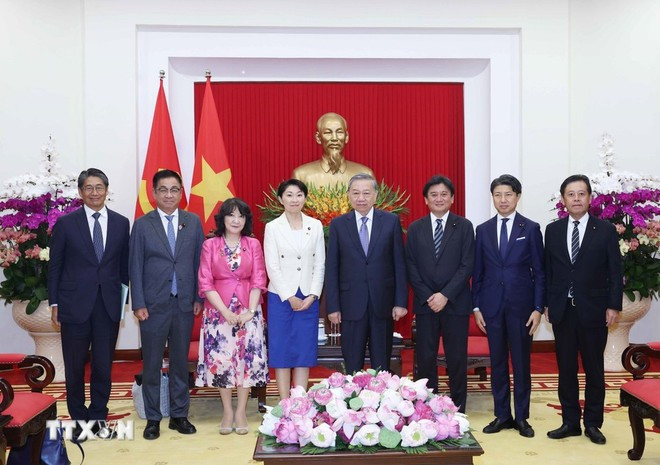
The two nations also maintain regular high-level exchanges, consolidating trust and working closely at international forums such as the United Nations, ASEAN and its partners, APEC, and ASEM. Nearly 700,000 Vietnamese are currently living and working in Japan, serving as an important bridge fostering social and cultural connectivity between the two countries.
Looking ahead, the Ambassador emphasised the need to sustain visits and professional exchanges, share legislative experience to address institutional barriers, and create conditions for socio-economic development. He also called for closer cooperation between the two legislatures at multilateral parliamentary forums such as the Inter-Parliamentary Union (IPU), the ASEAN Inter-Parliamentary Assembly (AIPA), and the Asia-Pacific Parliamentary Forum (APPF), while further promoting human resources training and development as a priority in advancing economic connectivity.
